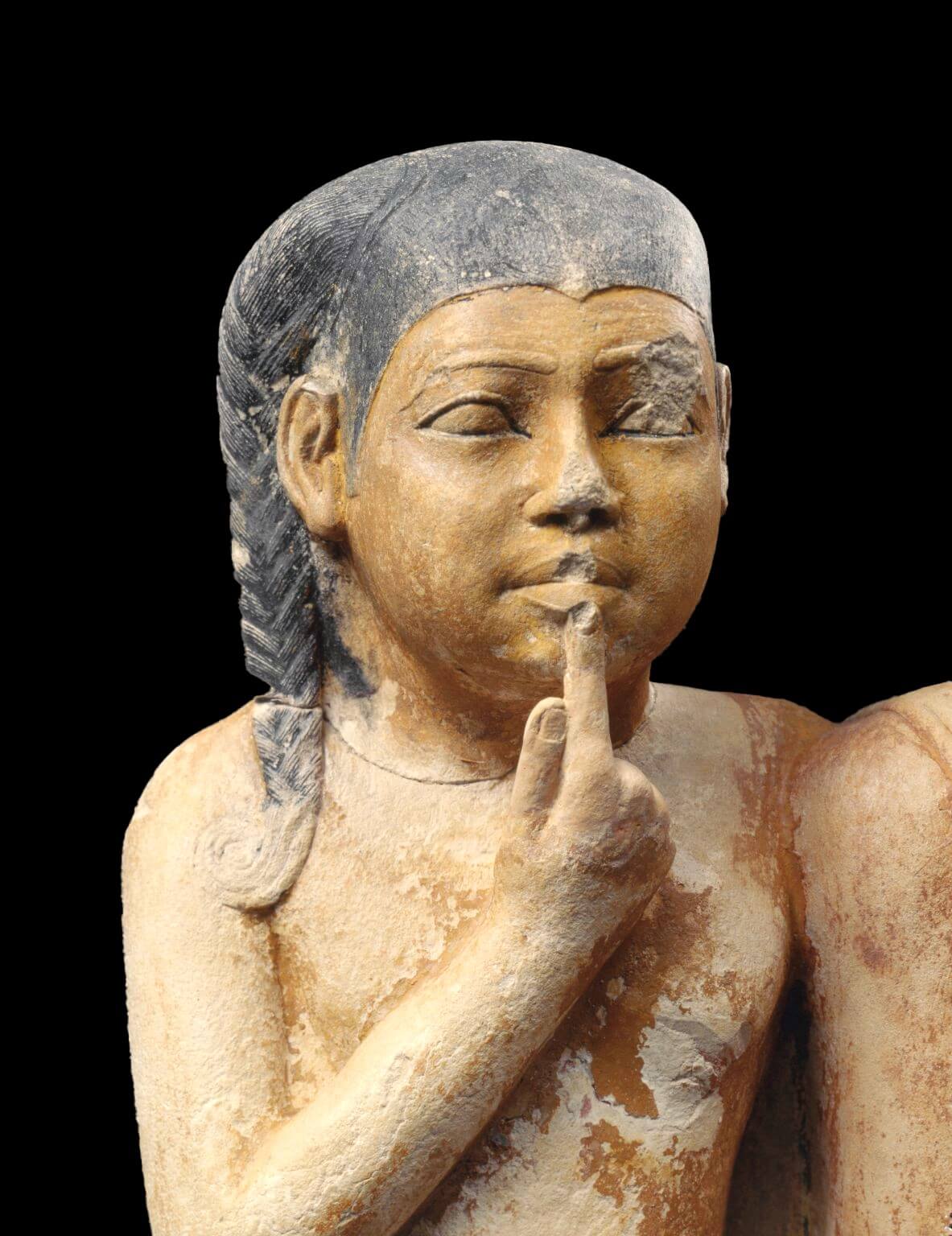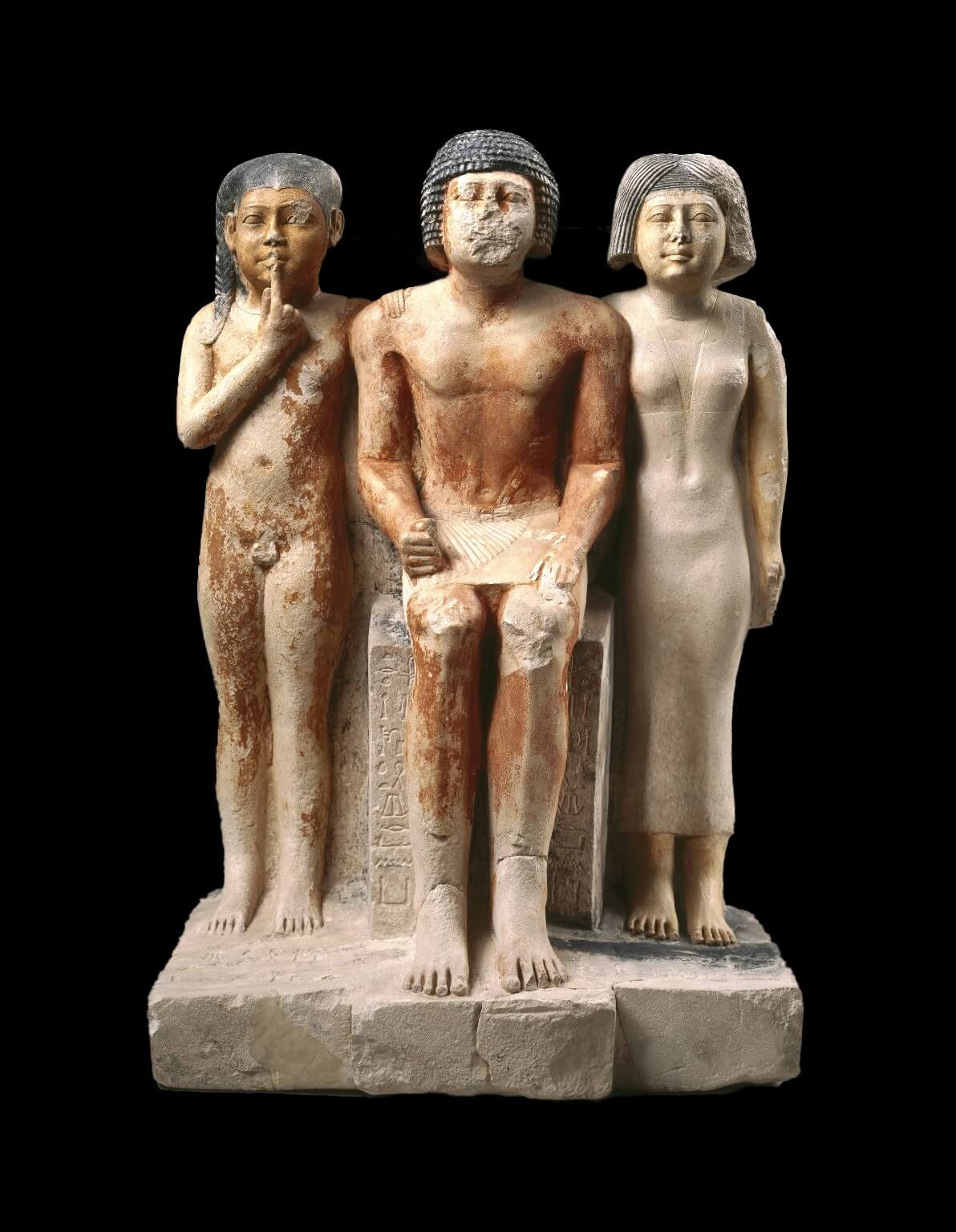The Statue of Ni-ka-re (also known as Nykara) represents a significant artifact from ancient Egypt, depicting Ankh-ma-re alongside Ni-ka-re in the classic “pondering” pose, which is often associated with depictions of children in Egyptian art. This statue serves as a captivating glimpse into the cultural and artistic practices of the time.
Symbolism of the Pondering Pose
The unique finger-to-mouth gesture displayed by Ankh-ma-re is a potent symbol of childhood, encapsulating the thoughtful and contemplative nature that characterizes youth. This pose not only signifies innocence but also reflects a moment of introspection, highlighting the value placed on contemplation within ancient Egyptian society. Such depictions indicate the cultural significance of childhood, as well as the expectations and perceptions surrounding young aristocrats.

Artistry and Craftsmanship
Crafted with remarkable precision, the statue exemplifies the intricate artistry and rich cultural symbolism characteristic of ancient Egyptian craftsmanship. The careful attention to detail demonstrates the skill of the artisans of the time, who employed various techniques to create lifelike representations that conveyed deeper meanings. This statue likely served as a tribute to family lineage and social status, reinforcing the importance of heritage among noble families.

Insights into Aristocratic Life
Beyond its artistic merit, this piece provides valuable insight into the daily life and customs of aristocratic households in ancient Egypt. It encapsulates the beliefs, social dynamics, and cultural norms of the elite. The portrayal of childhood in this statue underscores the significant role that family and social status played in the lives of the upper class, suggesting that children were seen as reflections of their family’s honor and prestige.

Conclusion: A Window into Ancient Egyptian Civilization
The Statue of Ni-ka-re and Ankh-ma-re serves as a fascinating artifact that continues to resonate with those interested in the rich tapestry of ancient Egyptian civilization. Its thoughtful portrayal of childhood highlights the intersection of art, culture, and society in ancient Egypt. As we study such artifacts, we gain a deeper understanding of the values and beliefs that shaped the lives of the people during this remarkable period in history.

